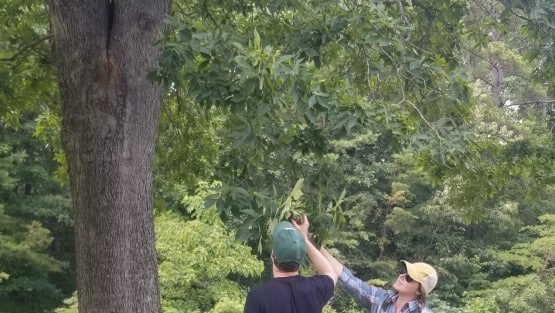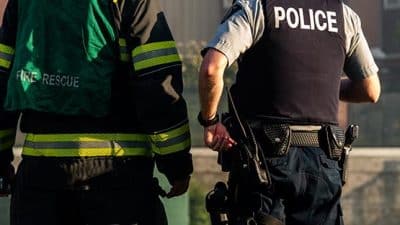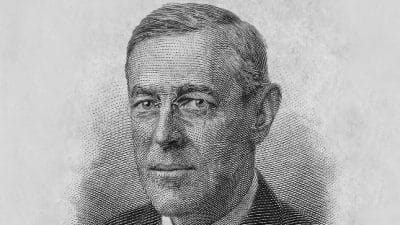Friday, July 10
– Judge throws out suit against Roanoke TV protestor
Thursday, July 9
– ACLU fighting jail censorship of religious materials
Friday, July 10
Judge throws out suit against Roanoke TV protestor
A Roanoke General District Court judge today dismissed charges against Katherine Gwaltney, a Hollins University student who was arrested for participating in a public demonstration targeting the nation’s obsession with television viewing. The May 14 protest, entitled “Must See TV,” involved about 60 individuals taking television sets to the Roanoke City Market, a central plaza in the city’s downtown area, and staring blankly at the screens.
The demonstrators did not gather as a group, but spread out around the public plaza. When police asked Ms. Gwaltney to move from her place, she said, “can’t you just wait until the next commercial?” She was then handcuffed and arrested. Her arrest was caught on video.
“We asked more than a dozen attorneys who practice constitutional law to view the video,” said ACLU of Virginia Executive Director Kent Willis. “They responded overwhelmingly that Ms. Gwaltney’s free speech rights had been violated.”
The ACLU and Ms. Gwaltney communicated about the incident, and ACLU lawyers were prepared to provide legal representation to Ms. Gwaltney had the charges not been dismissed.
“The right of protestors to stand in a public forum and express their views is nearly absolute under the First Amendment,” added Willis. “They can’t violate reasonable noise ordinances and they can’t block pedestrian traffic, but Ms. Gwaltney’s protest involved neither of these. It was the equivalent of standing on a soapbox in the town center, precisely the kind of expression the Bill of Rights was intended to protect.”
“The police got this backwards, as they often do in these situations,” said Willis. “Being sworn to uphold the Constitution means they should have been protecting Ms. Gwaltney’s right to protest, not preventing her from doing it. We hope that this incident will lead to some serious educational opportunities for police officers in Roanoke.”
“Naturally, we are pleased that the charges against Ms. Gwaltney have been dropped, but this kind arrest should never have occurred in the first place. There is nothing more chilling of free speech than to see someone arrested for doing it. Despite the good outcome here, the lasting image will be the one of Ms. Gwaltney being handcuffed and hauled off for simply exercising a fundamental right guaranteed by the Constitution.”
Thursday, July 9
ACLU fighting jail censorship of religious materials
The American Civil Liberties Union and the ACLU of Virginia today demanded that officials at the Rappahannock Regional Jail immediately end their illegal practice of censoring religious material sent to detainees.
In a letter sent today to the jail’s superintendent, Joseph Riggs Jr., the ACLU asks for jail officials to guarantee in writing that the jail will no longer censor biblical passages from letters written to detainees and to revise the jail’s written inmate mail policy to state that letters will not be censored simply because they contain religious material.
“It is nothing short of stunning that a jail would think it okay to censor the Bible and other religious material for no reason other than its religious nature,” said David Shapiro, staff attorney with the ACLU National Prison Project. “Such censorship violates both the rights of detainees to practice religion freely and the free speech rights of those wanting to communicate with detainees.”
The letter was prompted by a complaint brought to the ACLU by Anna Williams, a devout Christian whose son was detained at Rappahannock beginning in June of 2008 until his transfer earlier this year. Williams wanted to send her son religious material, including passages from the Bible, to support him spiritually during his confinement. But rather than deliver Williams’ letters to her son in full, jail officials removed any and all religious material, destroying the religious messages Williams sought to convey to her son. For example, after jail officials excised biblical passages, a three-page letter sent by Williams to her son was reduced to nothing more than the salutation, the first paragraph of the letter and the closing, “Love, Mom.”
Jail officials banned additional material from other letters Williams attempted to send her son, including passages from the Book of Proverbs, the Book of James, the Book of Matthew and an article that contained Christian perspectives on confronting isolation while in jail. Jail officials have variously cited prohibitions on “Internet pages” and “religious material sent from home” as reasons for the censorship.
“It is essential that jail officials abide by the law and the requirements of the U.S. Constitution,” said Daniel Mach, Director of Litigation for the ACLU Program on Freedom of Religion and Belief. “People do not lose their right to religious worship simply because they are incarcerated.”
The ACLU’s letter also asks jail officials to revise the jail’s inmate mail policy to state that letters will not be censored merely because they contain material printed from the Internet or copied from the Internet and inserted into a letter using a word processor’s “cut and paste” feature.
“Arbitrarily banning religious material is in direct odds with our nation’s constitutional values,” said Rebecca Glenberg, Legal Director for the ACLU of Virginia. “Americans are free to practice the religion of their choice, or no religion at all, without interference from any government official.”
Other signatories to the ACLU’s letter are the Virginia Interfaith Center for Public Policy, the Rutherford Institute, Prison Fellowship, the Friends Committee on National Legislation and the Becket Fund for Religious Liberty.
A copy of the ACLU’s letter is available online at: http://www.aclu.org/prison/restrict/40257res20090709.html.
Additional information about the ACLU National Prison Project is available online at: www.aclu.org/prison.
Additional information about the ACLU Program on Freedom of Religion and Belief at: www.aclu.org/religion.
Additional information about the ACLU of Virginia is available online at: www.acluva.org.










